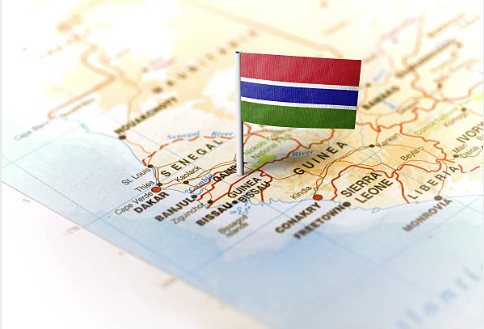Relocating to Gambia: What You Need to Know
Relocating to Gambia can be an exciting new chapter in your life, but it’s important to approach it with preparation and knowledge. From understanding the cost of living to adjusting to cultural differences, here’s a comprehensive guide on everything you need to know before making the move.
1. Understand the Cost of Living
The cost of living in Gambia is relatively low compared to many Western countries, making it an attractive destination for expatriates and retirees. Housing, utilities, and food are generally more affordable, especially in rural areas. However, the prices for imported goods—such as electronics, luxury items, and Western food brands—can be significantly higher. Dining out, particularly in tourist areas, may also be more expensive.
It's important to budget carefully based on your lifestyle preferences. Urban centers like Serrekunda and Banjul may have a higher cost of living compared to more rural regions. Understanding local prices for essential goods and services will help you plan your relocation costs more effectively.
2. Visa and Residency Requirements
Before moving to Gambia, make sure you have the appropriate visa for your stay. If you’re planning to stay for a short visit, you may not need a visa, but for longer stays (especially if you’re moving for work, retirement, or business), you’ll need to obtain a residence permit. The process for obtaining a visa is straightforward but may require you to submit documents like proof of accommodation, return tickets, and financial support.
The residence permit application process is also simple but will involve submitting paperwork to the Gambian authorities. It’s advisable to start this process ahead of time to ensure smooth entry and avoid any delays upon arrival.
3. Healthcare and Insurance
While Gambia has both private and public healthcare facilities, it’s important to keep in mind that the healthcare system may not be as advanced as what you might be used to in Western countries. Medical services in urban areas such as Banjul and Serrekunda are generally adequate, but rural areas may have limited medical facilities and resources.
For comprehensive healthcare, consider purchasing private health insurance that covers both medical emergencies and routine visits. This will give you peace of mind and ensure you have access to better care when needed. In addition, you may want to establish a relationship with a trusted doctor or clinic before moving.
4. Accommodation Options
Gambia offers a variety of accommodation options for expatriates, ranging from affordable apartments to luxurious villas. Rental prices in the capital city, Banjul, and other urban areas like Serrekunda may be higher, but there are also more affordable options available in the surrounding areas. It’s a good idea to explore different neighborhoods and rental markets before making a long-term commitment.
Consider your budget, proximity to work or school, and access to amenities like transport, shops, and medical facilities when choosing a place to live. Some expatriates prefer to rent initially before deciding on a permanent home.
5. Cultural Considerations
Gambia is a predominantly Muslim country, and local customs and traditions are important to observe. Respecting the local culture will help you adjust to your new life more easily and build positive relationships with the community.
For example, dress codes are typically modest, especially in more rural areas. Religious observances such as Ramadan are an important part of life, and it’s courteous to be aware of these traditions. Learning about the local customs, values, and basic greetings in Wolof or Mandinka can go a long way in making your transition smoother.
Additionally, respect for elders and community-based living is an integral part of Gambian culture, so taking the time to understand and appreciate these aspects will help you feel more at home.
Conclusion
Relocating to Gambia can be an enriching experience filled with opportunities. By understanding the cost of living, visa and residency requirements, healthcare, accommodation options, and cultural considerations, you’ll be well on your way to a smooth transition. Take the time to plan carefully and consult local experts to ensure a successful relocation.
For assistance with your relocation to Gambia, contact us at info@dalabarealestatecompany.com.
Hashtags:
#Dalaberealestate #ForeignBuyersInGambia #BuyingLandInGambia #RealEstateForForeigners #GambiaInvestment #GambiaPropertyMarket #OverseasInvestment #GambiaRealEstate #ExpatLifeInGambia #GambiaLandPurchase #GambiaTipsForInvestors #RealEstateServices #ConstructionExperts #PropertyExperts #LandSales #HomeSales #PropertyRestorations #RentalProperties #CommercialSpaces #HotelRentals #VillaRentals #AirbnbRentals #BuildingServices #PlumbingExperts #CarpentryServices #ElectricianServices #OverseasPropertyMaintenance #PropertyManagement #RealEstateInvesting #PropertySolutions #GambiaAccommodations #WhereToStayInGambia #GambiaHotels #GambiaResorts #BudgetTravelGambia #LuxuryTravelGambia #FamilyTravelGambia #VacationInGambia #GambiaGuesthouse #GambiaVacationRentals #GambiaTourism #TravelGambia #StayInGambia #GambiaTravelTips #BudgetFriendlyTravel #TravelingToGambia #FamilyFriendlyStay #GambiaAirbnb #GambiaLodging #GambiaAccommodationGuide#SoloTravel #GambiaSoloTravel #TravelSolo #GambiaTravel #SafeTravel #ExploreGambia #SoloAdventures #WomenTravelers #GambiaVacation #TravelTipsGambia #AdventureSolo #GambiaExperience #WestAfricaTravel #TravelAlone #GambiaCulture #SafeSoloTravel #TravelSmart #ExploreAfrica #SoloTravelerGambia #SoloTravelTips

Add comment
Comments